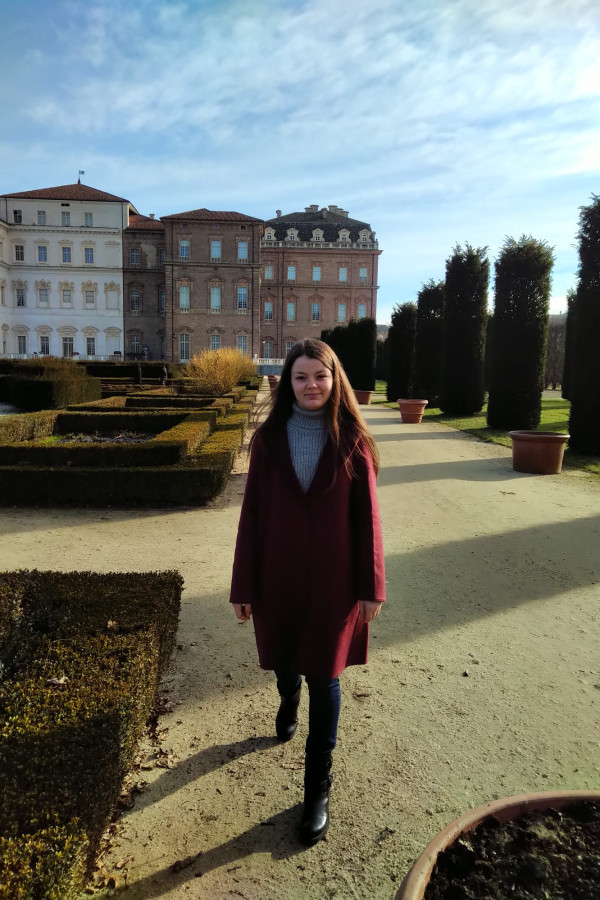Cecilia Botta
Interview by Nicola Nosengo, NCCR MARVEL on 30 June 2025
Have you always been interested in science?
As a child I wanted to be an inventor, and I was always attracted by research. When I was in elementary school, I envisioned myself getting three different university degrees, in physics, engineering and chemistry. Growing up I realized that it was better to focus on one topic, and it ended up being physics. A friend of my father is a professor at the International School of Advanced Studies in Trieste, and he played a big role in making me love physics. But I’ve remained very interested in chemistry, which is why I chose to study condensed matters physics to satisfy both passions.

Cecilia Botta
How did you hear about the INSPIRE Potentials Program?
One of my professors in Trieste, who teaches both condensed matter physics and computational physics realized that I had an inclination for computational studies and proposed to me this opportunity.
What is the topic of your master’s project?
We are studying the absorption of carbon dioxide on a particular type of MXene, a class of bidimensional materials. The one I am studying is Mo2Ti2C3, chosen because it has a great CO2 absorption potential but was not studied in depth so far. We are using DFT calculations, and the final goal is to create a machine learning potential to run dynamic simulations of CO2 on the surface of this material. We want to study both absorption and desorption, because we want a material that can both absorb and release carbon dioxide responding to temperature and pression. For all our calculations we rely on the supercomputer at the Swiss National Supercomputing Centre.
Do you think women face specific challenges in the sciences?
I can’t say I’ve experienced obstacles myself, compared to my male colleagues. My parents have always encouraged me, and I’ve never met professors who made me feel that this path was not right for me. But it’s true that in University I immediately found a significant gender gap, first during my bachelor’s and then in my master’s, where we were only three or four girls out of twenty students. And I’ve talked to other girls who were indeed discouraged to continue.
Any advice for young girls interested in science?
The most important thing is to have a good theoretical base, on things like DFT and electrodynamics. For those who are still in high school, I would recommend not to believe those who say that mathematics and physics are only for people who have an innate talent. It’s a quite common thought in Italy in particular, but it’s not true.
What are your plans for the future?
I would like to continue with a PhD, because during this project I’ve realized there is so much I don’t know about this field of research and I’m eager to learn more. I don’t know if I will stay in academia my whole life. I am not too interested in teaching, so that may not be my path.
